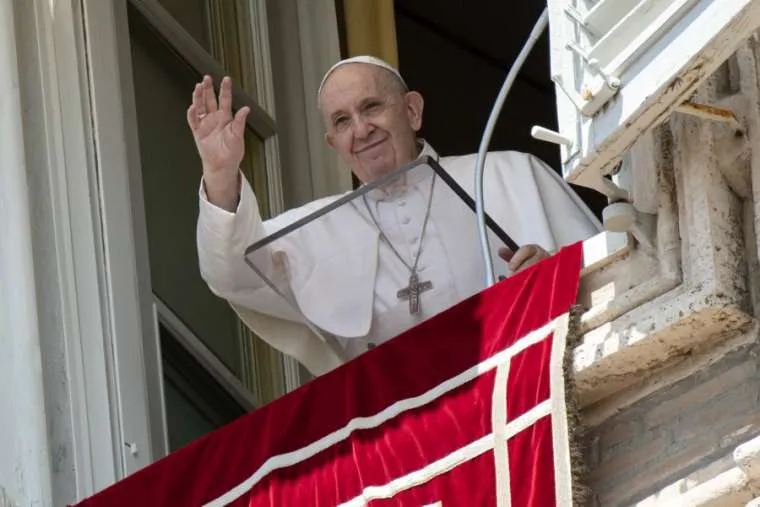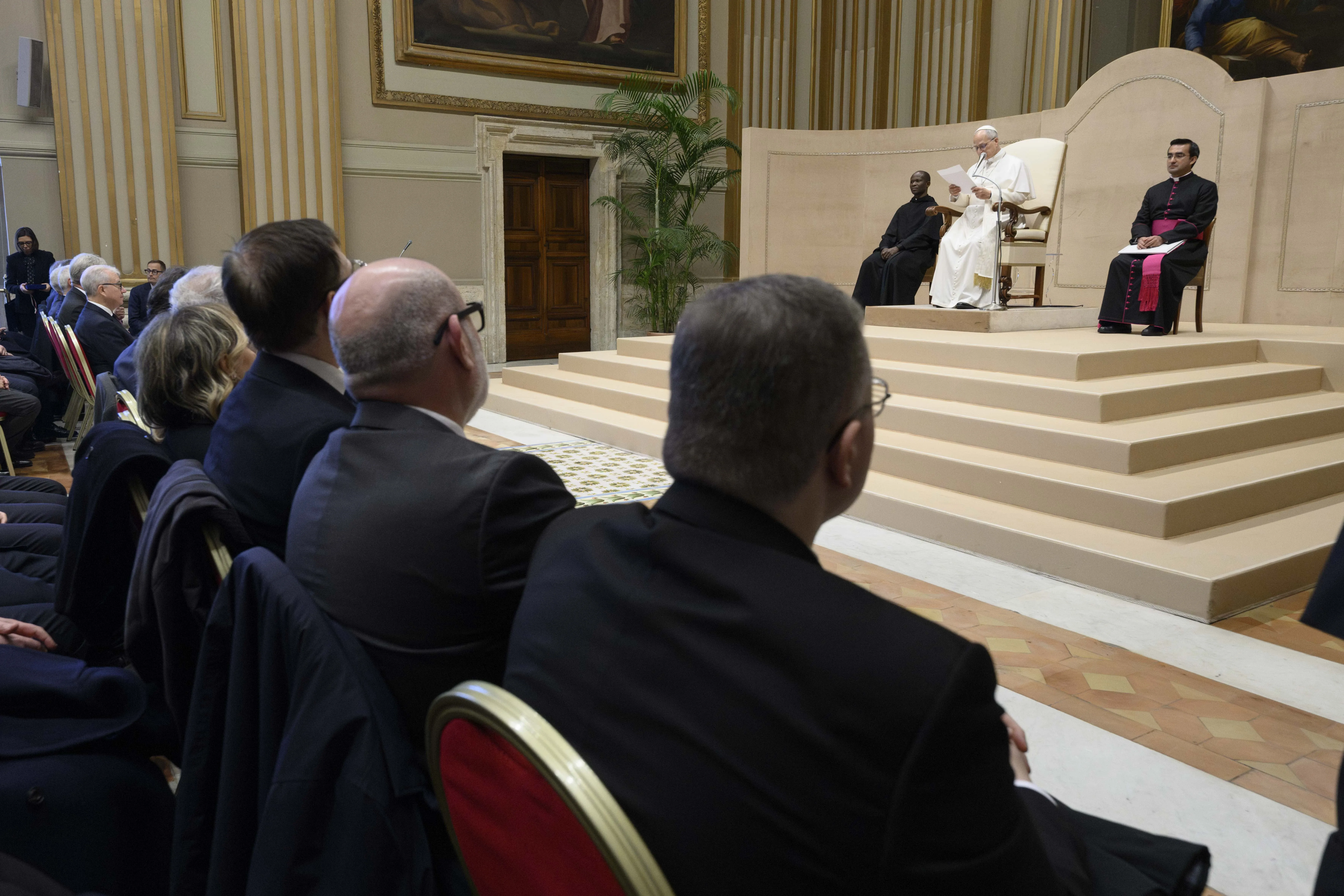“No. The logic of taking responsibility for others. That ‘let them fend for themselves’ should not enter into the Christian vocabulary.”
Pope Francis recalled that, after the disciples had presented Jesus with five loaves of bread and two fish, Christ performed a miracle enabling everyone to eat as much as they wanted.
He said: “With this gesture, Jesus demonstrates His power; not in a spectacular way but as a sign of charity, of God the Father’s generosity toward His weary and needy children. He is immersed in the life of His people, He understands their fatigue and their limitations, but He does not allow anyone to be lost, or to lose out: He nourishes them with His word and provides food in plenty for sustenance.”
Speaking from a window overlooking St. Peter’s Square, the pope pointed out the connection between the miracle of the multiplication of loaves and the Eucharist.
“It is noteworthy how close the link is between the Eucharistic bread, nourishment for eternal life, and daily bread, necessary for earthly life,” he observed.
“Before offering Himself to the Father as the Bread of salvation, Jesus ensures there is food for those who follow Him and who, in order to be with Him, forgot to make provisions. At times the spiritual and the material are in opposition, but in reality spiritualism, like materialism, is alien to the Bible. It is not biblical language.”
He continued: “The compassion and tenderness that Jesus showed towards the crowds is not sentimentality, but rather the concrete manifestation of the love that cares for the people’s needs.”
The pope said that Catholics should approach the Eucharist with the same compassionate attitude that Jesus displayed during the feeding of the 5,000.
“Compassion is not a purely material feeling; true compassion is ‘patire con’ (to suffer with), to take others’ sorrows on ourselves,” he said.
“Perhaps it would do us good today to ask ourselves: Do I feel compassion when I read news about war, about hunger, about the pandemic? So many things... Do I feel compassion toward those people? Do I feel compassion toward the people who are near to me? Am I capable of suffering with them, or do I look the other way, or ‘they can fend for themselves’?”







